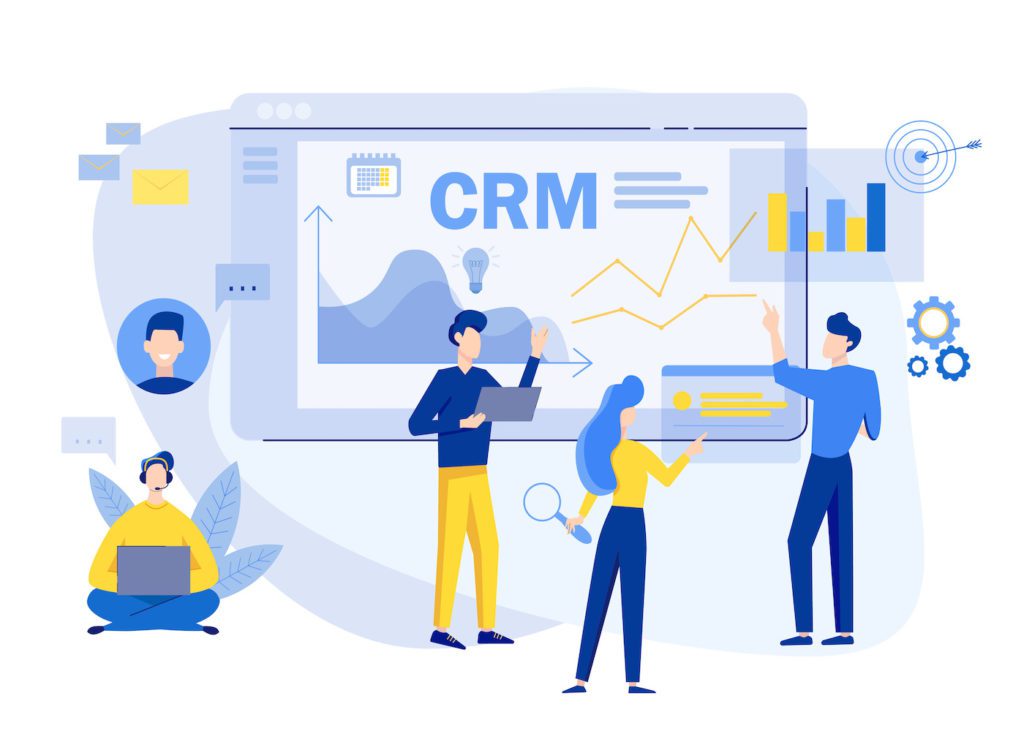
We may be compensated by vendors who appear on this page through methods such as affiliate links or sponsored partnerships. This may influence how and where their products appear on our site, but vendors cannot pay to influence the content of our reviews. For more info, visit our Terms of Use page.
Customer relationship management (CRM) involves many strategies that help businesses manage their interactions with current and prospective customers. Of the processes utilized for CRM, many are repetitive yet necessary. Therefore, businesses will often use CRM automation to perform these tasks without manual effort.
It’s important to understand how CRM automation works and its benefits before exploring what solutions can enable this technology for your organization.
CRM vs. marketing automation
CRM automation is an umbrella concept that covers sales, service, and marketing automation functionality. In each case, CRM automation executes tedious and repetitive tasks that staff would otherwise perform manually.
In the context of CRM, marketing automation features are generally intended to attract potential customers and identify opportunities to up-sell and cross-sell existing customers. Marketing automation may focus on lead generation, nurturing, or email drip campaigns, for example. These features help marketing teams launch strategic initiatives that are personalized based on customer data.
However, marketing automation can extend beyond the realm of CRM as well. For example, social media marketing functions can be automated independently of any CRM processes to generate awareness and engagement online. These marketing initiatives are most successful when combined with a strong CRM strategy as well.
Related: How to Create a CRM Strategy (Step-by-Step Guide)
What are the benefits of CRM automation?
CRM automation offers many benefits to an organization’s sales, service, and marketing teams. These include better lead management, simpler sales processes, faster customer service, improved efficiency, and richer data analytics and reports.
Also read: Advantages and Challenges of CRM Software
Better lead management
Software tools with CRM automation capabilities can help organizations with their lead generation and management. The software can assist staff in scoring leads who are most likely to convert, routing those leads to the right sales representative, and nurturing leads who need more time and information for their buying decisions.
Systems like Agile CRM, for example, can even monitor lead activity on Twitter, so organizations can know what is being said about their brand. CRM tools can also inform sales staff of data on leads, so they can manage their leads appropriately.
Simpler sales processes
CRM automation provides additional features for sales processes. For example, most CRM solutions like Salesforce are able to create quotes, process legal paperwork, and store necessary documentation for future reference. It can also reduce the total length of the sales process by making it easier to leverage customer data with lead scoring, routing, and follow-up tasks.
Faster customer service
CRM automation tools can address customer service issues instantly, which can benefit the satisfaction of your customers. Many CRM systems like HubSpot feature AI chatbots that immediately identify and address customers’ concerns with appropriate actions. Chatbot integration helps organizations improve customer service processes overall to help boost customer satisfaction.
Improved efficiency
CRM automation software tools can process multiple campaigns and tasks simultaneously, streamlining these processes for your organization. Users can develop workflows with automation on redundant tasks and apply them to other campaigns and processes so more can get done at once.
Tools like Bigin by Zoho can even allow users to develop and manage multiple sales pipelines. And by freeing up staff members’ time, they can feel less stressed about completing mundane tasks and focus on the more important priorities.
Richer data analytics and reports
CRM automation tools can process customer data and analyze it to generate impactful reports. This can help organizations learn about trends in data and sales forecasting, so they can make well-informed business decisions that will drive revenue and customer retention.
How to use CRM automation
CRM automation is most effective when implemented with a well-developed strategy. Consider which teams will use your CRM software and what kinds of manual processes could be eliminated from their workloads. Then, ensure the CRM software you choose can support those automations. The more you can streamline processes and information across teams, the more successful your organization’s CRM system will be.
Read next: Top CRM Software Solutions